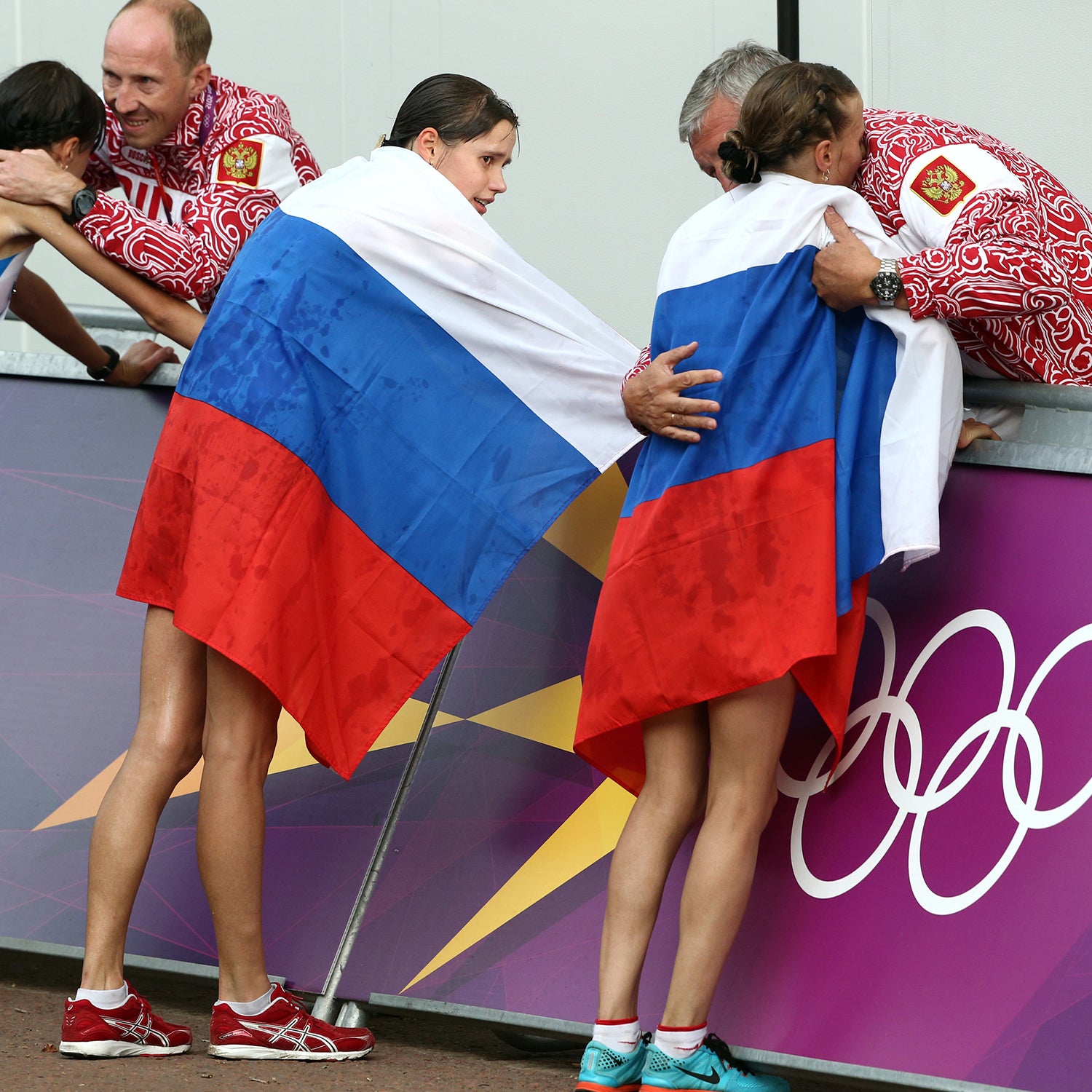Well, it’s official: While the world descends upon Rio for the Olympics this August, Russia will be watching at home from her couch. On Friday, the International Association of Athletics Federations (IAAF) chose to not reinstate the country’s membership, meaning that Russia’s track and field team will not be eligible to compete in Rio. The country has been suspended from international competition since November 2015 after the discovery that Russia was engaged in widespread, state-sponsored doping.
“Although good progress has been made, the IAAF Council was unanimous that [Russian track and field] had not met the reinstatement conditions and that Russian athletes could not credibly return to international competition without undermining the confidence of their competitors and the public,” IAAF president Sebastian Coe said in the release.
This must be heartbreaking news for Russian athletes, who have no doubt been taking PEDs in good faith for years expecting to compete in this summer’s Games.
There is, of course, one big winner from today’s ruling: a drug-free sport.
Just kidding! Pretty much every country has had athletes busted for PEDs, and Russia's ban doesn't seem like it will have much effect on doping, as the financial incentives of winning competitions are still too great to deter someone from not doping. The real winner from Friday’s verdict is the U.S.
Browse the medal table from London’s 2012 Summer Olympics, and you’ll see that the U.S. and Russia are first and second for overall track and field medals, respectively. It has been this way, with these two powerhouses fighting for gold, for decades—even before Russia was Russia. With this ruling, the U.S.’s dominance in Rio is almost assured.
As additional evidence, look at the World Indoor Championships. While the two once traded overall medal count victories, Russia’s ban for this past March left the U.S. steamrolling over runner-up Ethiopia, 23 medals (13 gold) to five.
Assured win aside, Russia’s absence will almost certainly make Rio less interesting to watch: Rocky IV without Ivan Drago is just a guy working out in a barn.
There is a small hope for Russian athletes, of course: In the same ruling, the IAAF passed a new amendment that would allow expatriated Russian athletes untainted by the state system (and with proof) to compete, albeit under the Olympic flag rather than the Russian. The board also recommended what could be referred to as a whistleblower amendment for those who contributed to exposing the country’s cheating. This could ironically mean that the only Russians to compete in the 2016 Olympics are those who have, by their own admission, taken PEDs.
Finally, there’s the remote chance that the International Olympic Committee, which is scheduled to meet on Tuesday, could side with Russia rather than the IAAF, despite never having done so in its history. Should it decide to overrule the IAAF’s decision, Russia would be in the clear.
But, if I may, let me propose a third option: mass defection to other countries.
The IAAF’s guidelines state that, in order to transfer an athlete’s allegiance, all he or she must do is appeal to his or her national governing body and the new country’s governing body. Russia, which has in the preceding months complained that innocent athletes will suffer because of its suspension, certainly wouldn’t mind if these innocents found other ways to compete, right?
And the receiving countries? Who wouldn’t want to take on a potential medal-winner or two? The requisite three-year waiting period for transferring athletes prior to international competition can be expunged if the situation falls under “exceptional cases,” according to Rule 5 from the IAAF Competition Rules. Bahrain and Qatar have a long history of acquiring foreign-born athletes; the U.S. has also been known to open her arms.
In the end, the world is a fertile place for exceptional athletes in an exceptional Olympic year. And the Russians, as proven by the medal count and the enormity of allegations, are nothing if not exceptional.


